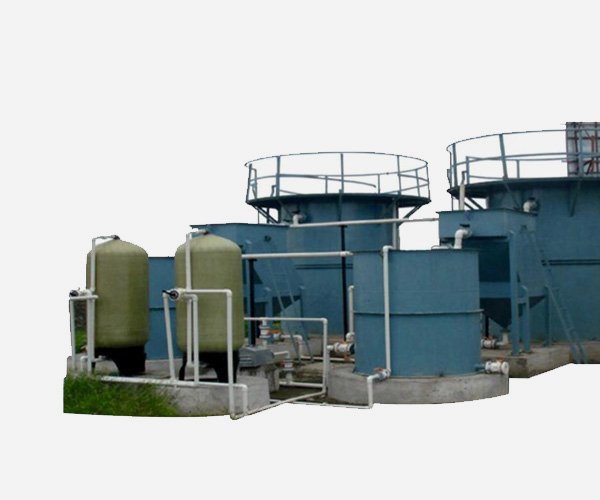Effluent Treatment Plant Manufacturer | Industrial & Commercial Solutions
Water Pure Filtration is a leading Effluent Treatment Plant Manufacturer in India, offering advanced water treatment solutions designed to purify, treat, and recycle industrial wastewater with high efficiency. Our ETP systems are widely used in various industries, including hospitals, textiles, pharmaceuticals, power plants, chemical processing units, and food manufacturing, ensuring safe discharge and full compliance with environmental standards.
An Effluent Treatment Plant Manufacturer in Ahmedabad. specialises in designing and supplying advanced systems that treat industrial wastewater to make it safe for discharge or reuse. These plants use processes such as filtration, biological treatment, chemical neutralisation, and sludge handling to remove harmful pollutants, toxic chemicals, and suspended solids from effluents. ETP plant manufacturer are known for delivering cost-effective and eco-friendly solutions.
Effluent Treatment Plant Solutions | ETP Systems for Clean Water
We are a leading Effluent Treatment Plant Manufacturer in India, delivering reliable and efficient solutions for wastewater management. Our ETP plants are designed to treat industrial effluents effectively, ensuring compliance with environmental standards while promoting sustainable practices. Built with advanced technology, they help industries minimise water pollution, recycle wastewater, and reduce operational costs. Each plant is engineered for durability, easy operation, and low maintenance, making them suitable for industries like textiles, chemicals, pharmaceuticals, and more.
Wastewater generated in a dairy holds highly putrescible organic constituents. This necessitates timely and adequate treatment of the wastewater before it is disposed of into the environment. Almost all the organic constituents of dairy wastes are easily biodegradable. Thus, the wastewater is amenable to biological treatment by both aerobic and anaerobic processes. Our effluent treatment plant matches the international and national standard norms. Our plant has a compact & sturdy design and is quick to install.
An ETP plant is a highly efficient wastewater treatment system specifically designed to treat industrial effluents before they are discharged into the environment, ensuring compliance with environmental safety standards. These plants are essential for removing harmful chemicals, toxic substances, heavy metals, oils, and other pollutants commonly found in industrial wastewater, making the water safe for reuse or disposal. ETPs use a combination of physical, chemical, and biological processes such as sedimentation, filtration, coagulation, aeration, and biological degradation to treat complex industrial waste.
ETP Plant Technical Specifications
| Parameter | Specification |
|---|---|
| Treatment Capacity | 5 KLD to 1000 KLD (customizable as per industry needs) |
| Treatment Technology | Physico-Chemical + Biological + Tertiary Treatment |
| Influent Characteristics | BOD: 300–1000 mg/L, COD: 600–2000 mg/L, TSS: 400–800 mg/L |
| Effluent Quality | BOD < 30 mg/L, COD < 100 mg/L, TSS < 50 mg/L |
| Material of Construction | RCC / MS / FRP / HDPE / PP (based on chemical compatibility) |
| Automation Level | Manual / Semi-Automatic / Fully Automatic |
| Power Requirement | 3–Phase, 415V, 50Hz |
Frequently Asked Questions (FAQ)
What is an Effluent Treatment Plant (ETP)?
An ETP is a system designed to treat industrial wastewater by removing harmful chemicals, solids, and pollutants, making the water safe for discharge or reuse.
Why is an ETP important for industries?
It ensures compliance with environmental regulations, reduces pollution, and promotes water recycling—critical for sustainable industrial operations.
How does an ETP Plant work?
The process typically includes screening, pH correction, coagulation, biological oxidation, filtration, disinfection, and sludge treatment.
Can treated water from an ETP be reused?
Yes, after proper treatment, the water can be reused for cooling systems, cleaning, gardening, or other non-potable applications.
Which industries commonly use ETP Plants?
Textile, chemical, pharmaceutical, food processing, and automotive sectors rely on ETPs to manage wastewater responsibly.
What are the benefits of installing an ETP Plant?
It reduces environmental impact, conserves water, avoids regulatory penalties, and supports long-term operational efficiency.
How often should an ETP be maintained?
Routine maintenance every 3–6 months is recommended, including checks on filters, pumps, tanks, and automation systems to ensure optimal performance.
WhatsApp us

